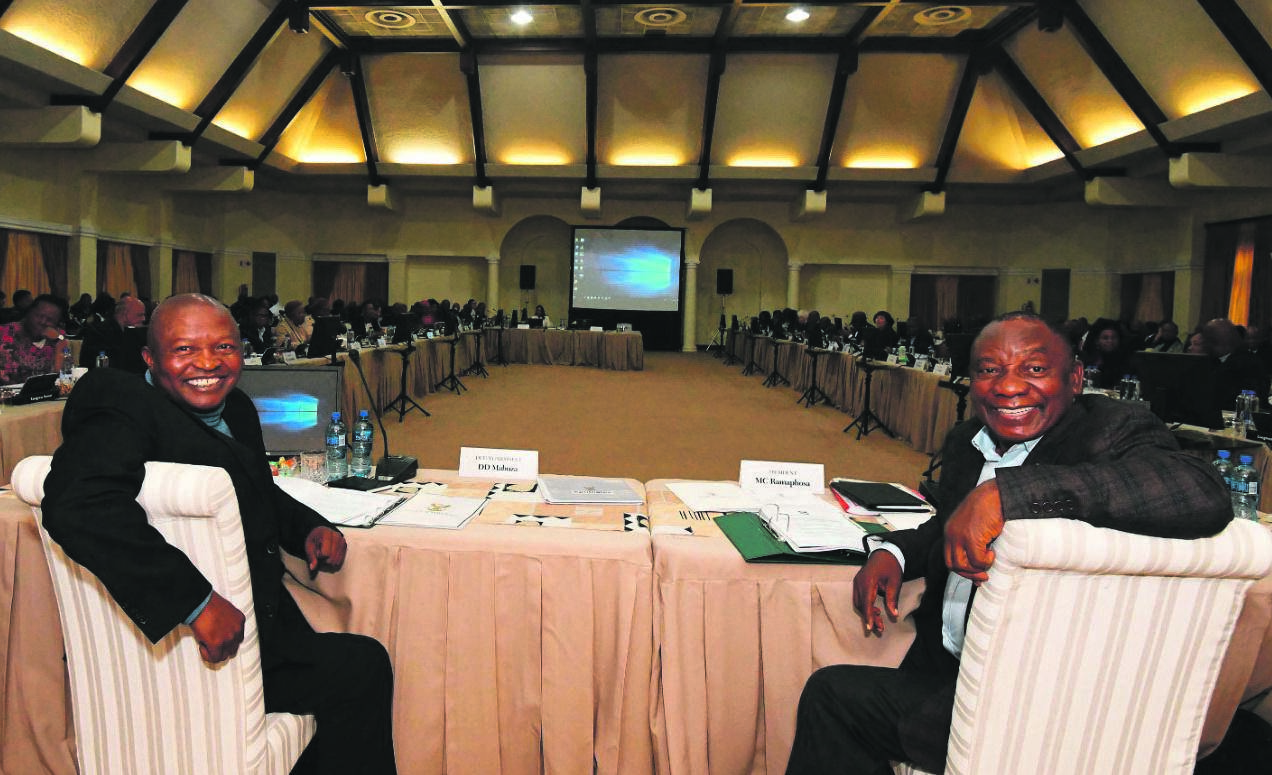
The South African state needs to shift from being a “deliverer of services” to being an “enabler of development by the people and communities”.
The country should also move to build a “professional, competent, committed, passionate and honest civil service” in the departments and state-owned enterprises.
This was the message delivered to the ANC’s recent National Executive Committee lekgotla by experts on the developmental state.
In hard-hitting presentations to the gathering, veteran public official Bernie Fanaroff and economic and urban development guru Andrew Boraine painted a picture of a stodgy and disorganised state unable to fulfil its mandate.
Fanaroff’s message was that one of the reasons why South Africa was still struggling with the execution of policy and projects 25 years down the line was that “some policies are too ambitious and complex to be executed with our limited resources of skills and expertise”.
In a paper titled A new dawn needs new state capabilities Boraine stated that in terms of experiences on the ground the South African state was “disorganised”, “disabling” and “distant”.
There was poor integration of policies and budgets, and governance was encumbered by a system of rigid and complex rules and processes.
He also spoke of a culture of “top-down command and control attitudes” in which participatory processes were just exercises in ticking boxes.
Fanaroff's presentation highlighted the fact that government departments, prone to hierarchical and slow decision making, were “structured for compliance, not rapid delivery”.
They also lacked in-house expertise and project management ability. The lack of knowledge, he argued, helped to facilitate corruption.
Another obstacle that both Fanaroff and Boraine highlighted was the tendency of state officials to do nothing rather than getting something wrong.
“Officials are often afraid to do something in case they are ‘wrong’. It is ‘safer’ to do nothing,” said Fanaroff.
Picking up on the same theme, Boraine said: “When officials and their politicians are more afraid of the Auditor-General than community protests, we need to be worried. The net result is doing nothing very well (as shown in green scorecards and clean audits), rather than doing something creatively and risking failure.”
Fanaroff emphasised the need to create and retain expertise in the state, both at management and technical levels.
“Appoint on competence, commitment and integrity. There are many people with skills and expertise who could be deployed, but we too often deploy the wrong people for the wrong reasons.”
He also stressed the need to depoliticise the civil service and called for the elimination of so-called gatekeepers – people in government who plant themselves as barriers between decision makers and the people and implementing experts. Gatekeepers often do this with the intention of enhancing their own power.
Pointing out that most public servants want to do their jobs well and that money was often not the most important thing to them, Fanaroff motivated for continuous training of state staff and the building of their expertise.
He also motivated for the review of the usefulness of public administration degrees as opposed to more technical qualifications.
A key ingredient to building a developmental state, both men argued, was collaboration between different sections of government and between government and other societal actors.
Boraine wrote that competition between departments, between spheres of government and between municipalities was a huge drawback.
Before government could begin forging effective partnerships with the private sector and nongovernmental organisations, academia and faith-based institutions it needed to do away with “non-collaborative attitudes” in its own system.
Political leaders would then have to accept that “government can’t do everything” and that “it needs good relationships with nongovernmental partners”.
“The South African developmental state aspires to be a relational state: cooperative relationships between spheres of government and inclusive relationships between government and society.” Such a scenario would create “combined value for all parties”.
Fanaroff also urged leaders not to overpromise and underdeliver, because that often led to service delivery protests.
It was better to explain to citizens why everything could not be done all at once. This built trust.
“People are patient when they trust leaders and become impatient when they lose trust. They lose hope.”
| |||||||||||||
| |||||||||||||




 Publications
Publications
 Partners
Partners








